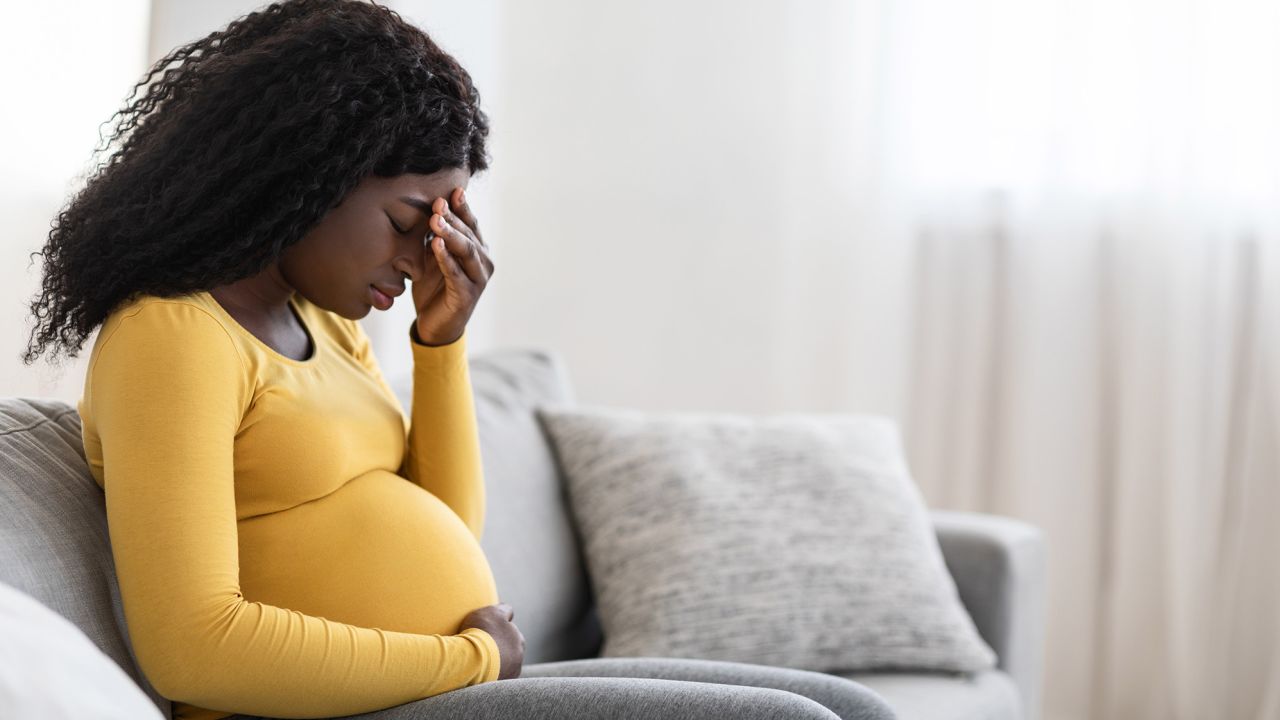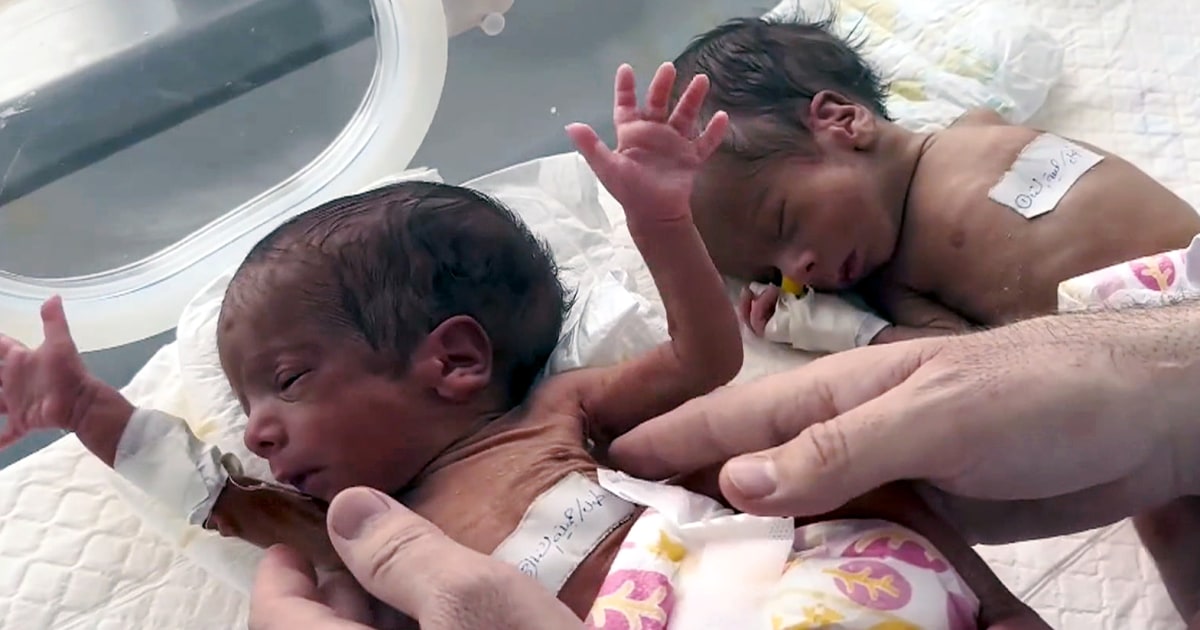"I lost my wife and son": The tragic reality of postpartum depression 6:18
(CNN) --
Being pregnant is hard enough, but with the added pressure of work, a shaky economy and the risks of Covid-19, it can seem overwhelming.
But if possible, mothers-to-be should try to take stock of their stress and seek help to reduce how often their newborn may experience negative emotions, according to a new study.
The study, published Wednesday in the academic journal Infancy, found that babies of mothers who experienced more stress fluctuations during pregnancy showed more fear, sadness and distress at three months than those of less stressed mothers.
Women with higher fluctuations were more likely to report that their babies seemed angry, cried or fussed when they were placed in the crib;
they showed distress when tired and clung to a parent when introduced to an unfamiliar adult, the study found.
“We know that babies who experience chronic stimulation of the stress response system (a chronic elevation of cortisol), or 'toxic stress', without the mediation of a caring adult, have an impact on early brain development, the immune system and epigenetics," Dr. Marian Earls, chairwoman of the Council on Healthy Mental and Emotional Development at the American Academy of Pediatrics (AAP), said in an email. She was not involved in the study. study.
Research on babies of mothers with postpartum depression also sheds light on other potential impacts.
For example, children of depressed mothers are more likely to have higher levels of the stress hormone cortisol as preschoolers, "and these changes in levels are related to anxiety, social distrust and withdrawal," according to the AAP policy statement on postpartum depression.
When mothers suffer, babies do too.
It's time the world took notice, say maternal mental health experts
These children may have "poor self-control, poor peer relationships, school problems, and aggression," as well as attachment disorders, conduct problems, and depression and other mood disorders, the statement says.
advertising
However, a 2019 study found that if a child has a caring adult who provides a safe and stable parenting relationship, many childhood adversities can be changed.
Real-time stress data collection
The researchers had 72 women complete surveys about their stress levels up to four times a day for a period of 14 weeks during pregnancy.
When their babies turned 3 months old, the mothers filled out the Infant Behavior Questionnaire, a survey that measures the temperament of babies.
Measuring the ebb and flow of stress in real time during pregnancy allowed the scientists to see a more complete picture of women's stress levels.
Coping with Postpartum Depression: Diagnosis and Treatments
High fluctuations could mean that "people have more instability in their current life circumstances, or that those people might have a tendency to perceive that their circumstances are less stable or that they have more difficulty regulating their emotions," the author said. The study's principal, Leigha MacNeill, a research assistant professor of medical social sciences at Northwestern University Feinberg School of Medicine in Chicago.
These frequent changes can have important implications for children's emotional development, MacNeill said.
The next step in the research is to look at how the mother's biology changes as her stress fluctuates, so researchers can learn more about how it affects the baby, she said.
Also, it's normal to experience some stress during pregnancy, so more data is needed to determine what types and levels of stress affect mother and baby, MacNeil said.
The pandemic did not affect stress patterns
While the researchers did not intend to conduct this study during a pandemic, it was a happy accident because it allowed them to examine whether stress levels were different in pregnant women before and during Covid-19.
"We found that participants reported similar levels of stress patterns, regardless of whether their stress measurements were taken before or during the pandemic," MacNeill said.
However, the study is limited because most of the women were middle-to-upper class, in a relationship, and well-educated, which could have shielded them from much of the stress families felt during the pandemic, the authors say. .
How you can reduce stress before and after pregnancy
It's natural to feel stressed during pregnancy, but there are strategies to prevent it from negatively affecting women and their babies.
Moms-to-be can try deep breathing exercises to reduce stress and lower heart rate.
One technique is called abdominal breathing, which involves breathing in through your nose for five seconds and then breathing out through your nose for another five seconds.
Exercising for at least 150 minutes per week can lower your risk of developing depression and reduce anxiety and stress during pregnancy, according to a 2019 report in the journal Medicine.
Postpartum depression cost the lives of a woman and her son
An activity like yoga can strengthen the muscles used during childbirth and lessen the severity of medical conditions like nausea and back pain, according to the Mayo Clinic.
Yoga is also a relaxing form of physical activity, which can improve your mental health by releasing endorphins, or feel-good hormones.
Women should talk to their gynecologist to make sure physical activity is safe during pregnancy, the Mayo Clinic said.
Participating in stress-reducing activities after childbirth can also be beneficial for both moms and their babies.
Research has shown that allowing new mothers more opportunities to "bond, breastfeed and just cuddle with their children" can help babies reduce "their responses to stress more effectively," the AAP said in a statement. policy on the prevention of toxic stress in childhood.
Life events, both positive and negative, can shape a child's future, the AAP said, adding that studies have shown that positive experiences like reading books with "engaged and responsive caregivers," appropriate play for age with other children and quality day care and preschool education "are associated with positive impacts on learning, behavior and health."
postpartum depressionstressMaternity








/cloudfront-eu-central-1.images.arcpublishing.com/prisa/AR4TPPVGS5HKNAVGMCEWHZZT64.jpg)
